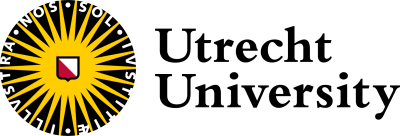Utrecht University
Utrecht, NL
The Institute for Risk Assessment Sciences (IRAS) is an interfaculty research institute (collaboration of the faculties of Veterinary Medicine, Medicine and Science) at Utrecht University.
The IRAS’ mission is to provide education and conduct research in the field of health risks posed to humans by exposure to pathogens and possible hazardous substances in the environment, at work or in the food chain.
Research in the Environmental Epidemiology and Exposome Sciences group, headed by Prof. Roel Vermeulen, is focussed on the environmental contributors (non-genetic factors including lifestyle, environmental, occupational exposures) to non-communicable diseases. The research program combines high quality exposure assessments, biological read-outs, and clinical evaluations into state-of-the-art risk assessment approaches. The goal of the research of the Toxicology division, headed by Prof. Juliette Legler, is to develop innovative toxicity testing methods and contribute to chemical risk assessment with fundamental knowledge on the mechanisms of toxicity of environmental contaminants, with special emphasis on the (developing) endocrine, neuro and immune system. The immuno toxicology group is lead by Dr. Raymond Pieters.
Role in the project
Leading WP6, UU serves as a crucial nexus for deriving causal associations between EDC exposure and health outcomes. Synthesizing findings from WPs 3, 4, and 5, WP6 establishes causal inference to inform risk assessment policies and approaches. By elucidating pathways linking EDC exposure to adverse health outcomes, WP6 facilitates the translation of research findings into actionable insights for policymakers, regulatory bodies, and public health practitioners. Additionally, UU contributes significantly to various tasks across WPs 1, 2, 3, 4, and 5. In WP1, they assess health effects associated with exposure to EDC mixtures, while in WP2, they contribute to the identification of chemical mixtures of concern for endocrine disruption and immunotoxicity-related adverse outcomes. Furthermore, UU investigates the immunotoxic and immunomodulatory potential of selected EDCs and mixtures in WP3 and assesses the impact of EDCs on physiological barriers, target organs, and immune cell-organ interactions in WP4. Finally, UU contributes to unraveling the intricate relationship between immune-mediated effects of EDCs and human health outcomes in WP5.
Team
Robert van Vorstenbosch

Robert van Vorstenbosch is a PostDoc at Utrecht University at the Institute of Risk Assessment and Safety (IRAS) in the group of Roel Vermeulen. He has a background in Analytical Chemistry, obtained at the University of Amsterdam (UvA and VU), during which he did internships at TNO, Shell and DSM. As a chemist, he specialized in data-analysis and chemometrics. He pursued his PhD at the University of Maastricht, where, using machine-learning methods in a clinical set-up, he investigated gut-health using Volatile Organic Compounds in fecal headspace and exhaled breath under the supervision of Agnieszka Smolinska. Topics included colorectal cancer, inflammatory bowel disease, irritable bowel syndrome, and liver diseases (MAFLD and primary sclerosing cholangitis). Currently, he is involved in (European) projects including Endomix, EDC-MAFLD, Expanse, and Exposome-Scan. Here, he combines literature-based Large-Language-Models to direct metabolomics research questions. Other interests include novel data-analytical techniques to better comprehend complex systems. Overall his focus is on understanding the health effects of chronic (chemical) exposures.
Roel Vermeulen

Prof. Roel Vermeulen is a Professor of Environmental Epidemiology and Exposome Science at the Institute for Risk Assessment Sciences (IRAS), Utrecht University and at the Julius Center for Health Sciences and Primary Care, University Medical Center Utrecht, The Netherlands.
He is the chair of the Planetary Health Program of Utrecht Life Sciences at Utrecht University and the Scientific Director of the preventive health program of the alliance between the Universities of Wageningen, Eindhoven and Utrecht and the academic Medical Center Utrecht.
Prof Vermeulen’s scientific research focuses on environmental risk factors for cancer, cardiometabolic and neurological diseases through inter and trans-disciplinary research. One of the current research areas is the exploration of new methods for quantifying the external and internal exposome.
He coordinates the Dutch research program on the exposome (Exposome-NL), leads an EU project (EXPANSE) as part of the European Human Exposome Network, The AURORA project as part of the EU cluster on nano- and microplastics research, coordinates the International Human Exposome Network (IHEN), and coordinates the Dutch Hub of the European infrastructure on Exposome research (EIRENE-NL). He is the PI of several large case-control and prospective (biobank) studies in occupational and the general population.
Raymond Pieters

Dr. Raymond Pieters (male, PhD) is Associate Professor in Immunotoxicology at the Institute for Risk Assessment Sciences (IRAS) of UU (Faculty of Veterinary Medicine), and Professor in Innovative Testing in Life Sciences & Chemistry at Utrecht University of Applied Sciences Utrecht. His research focuses on assessment of effects of substances (e.g. drugs, pollutants, microplastics) on inflammatory processes and immune responses. He has been involved in several international projects researching proinflammatory mechanisms of allergenic and autoimmunogenic chemicals. He currently leads the EC-HORIZON project POLYRISK, aiming at understanding human exposure and health hazards of micro- and nanoplastic contaminants in our environment.

